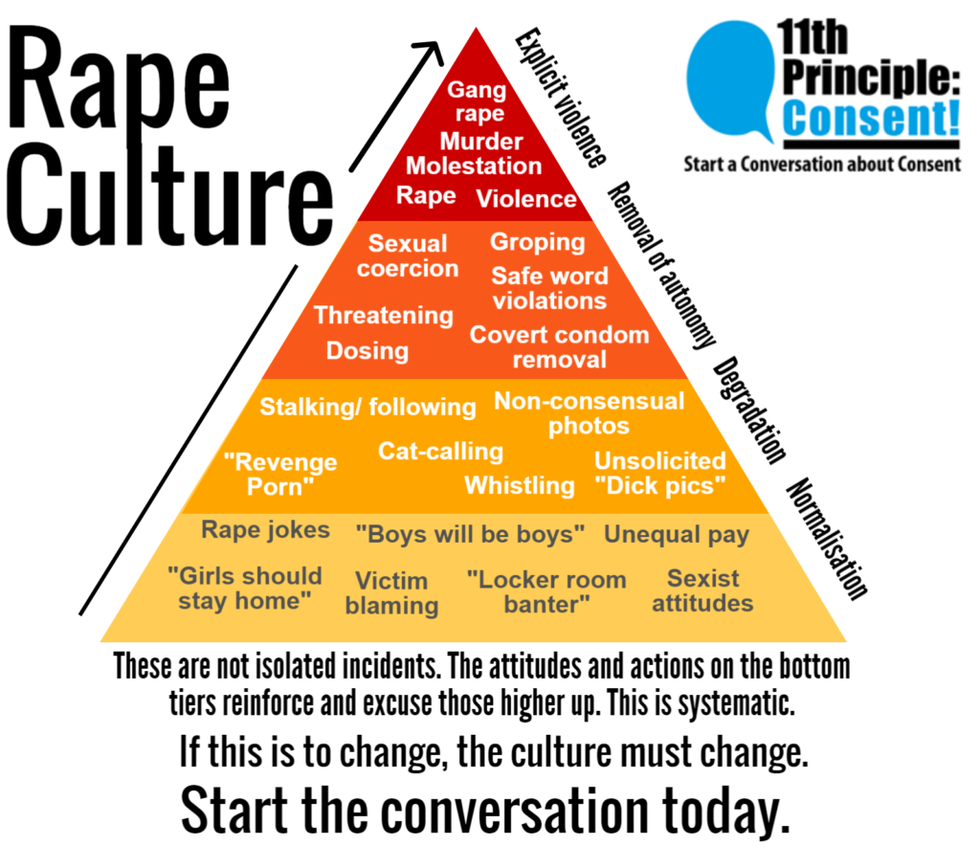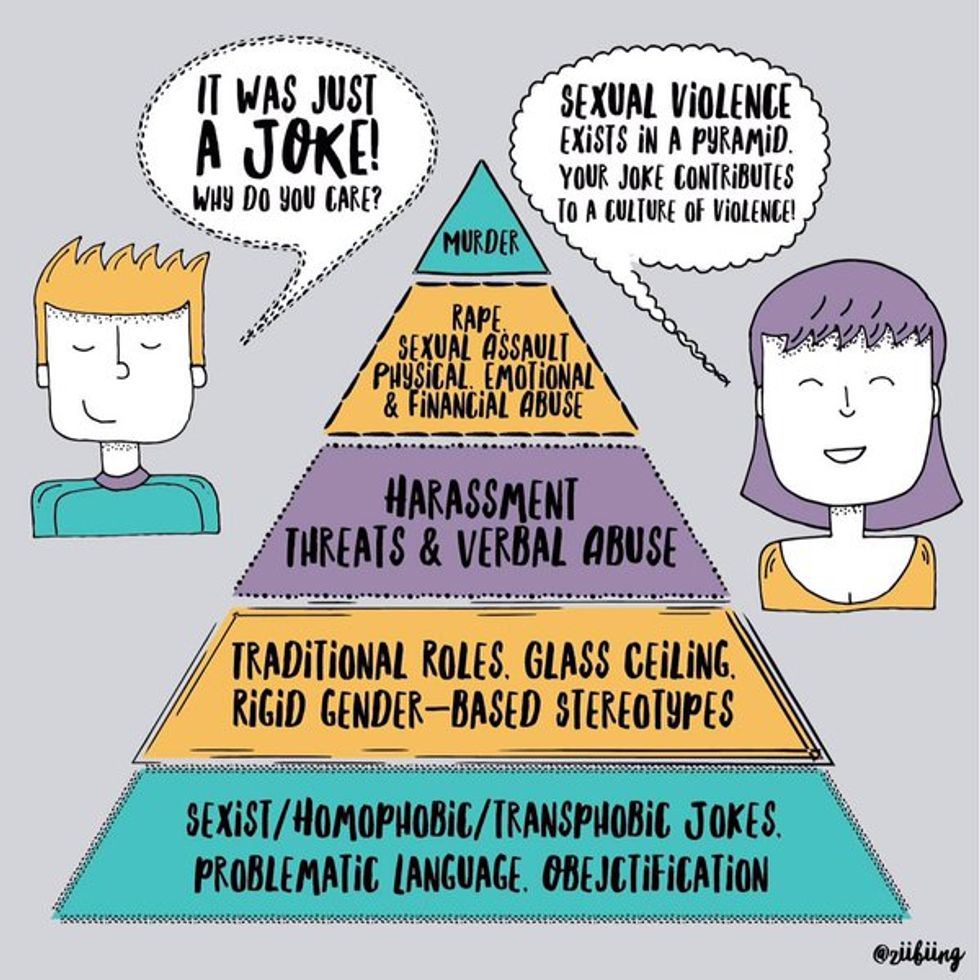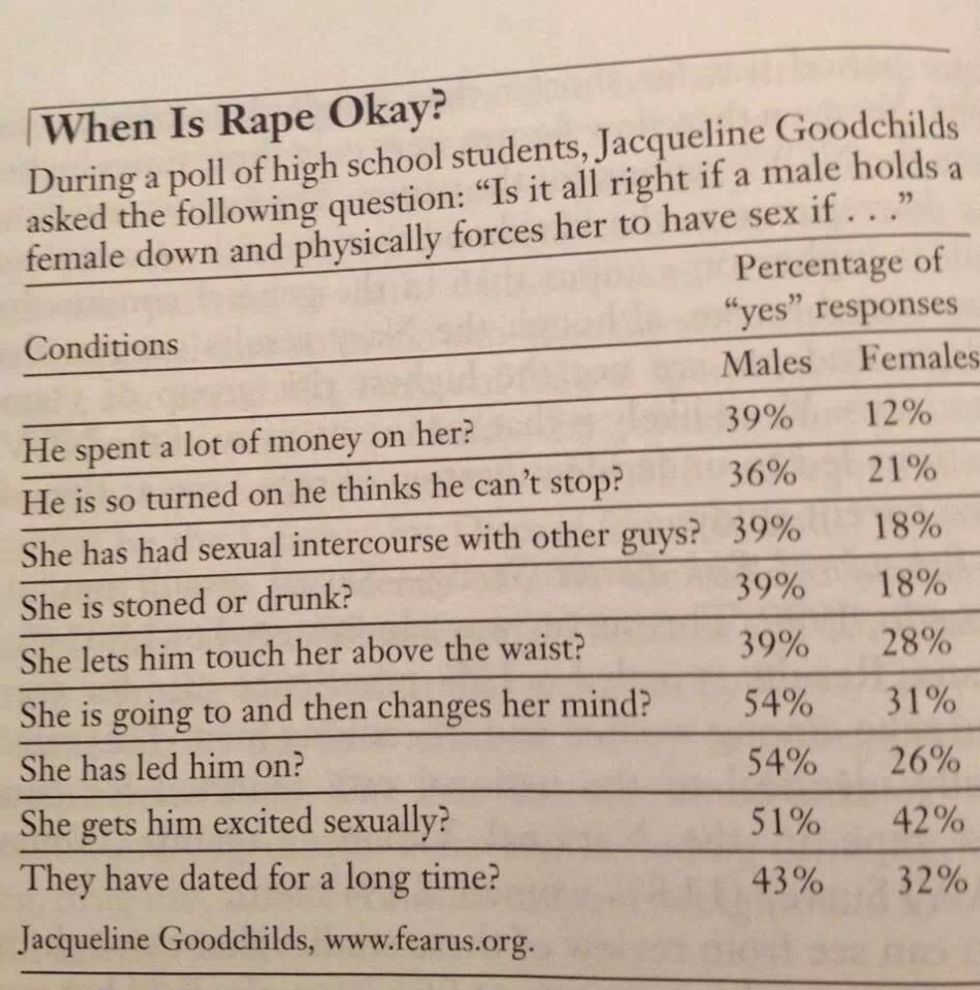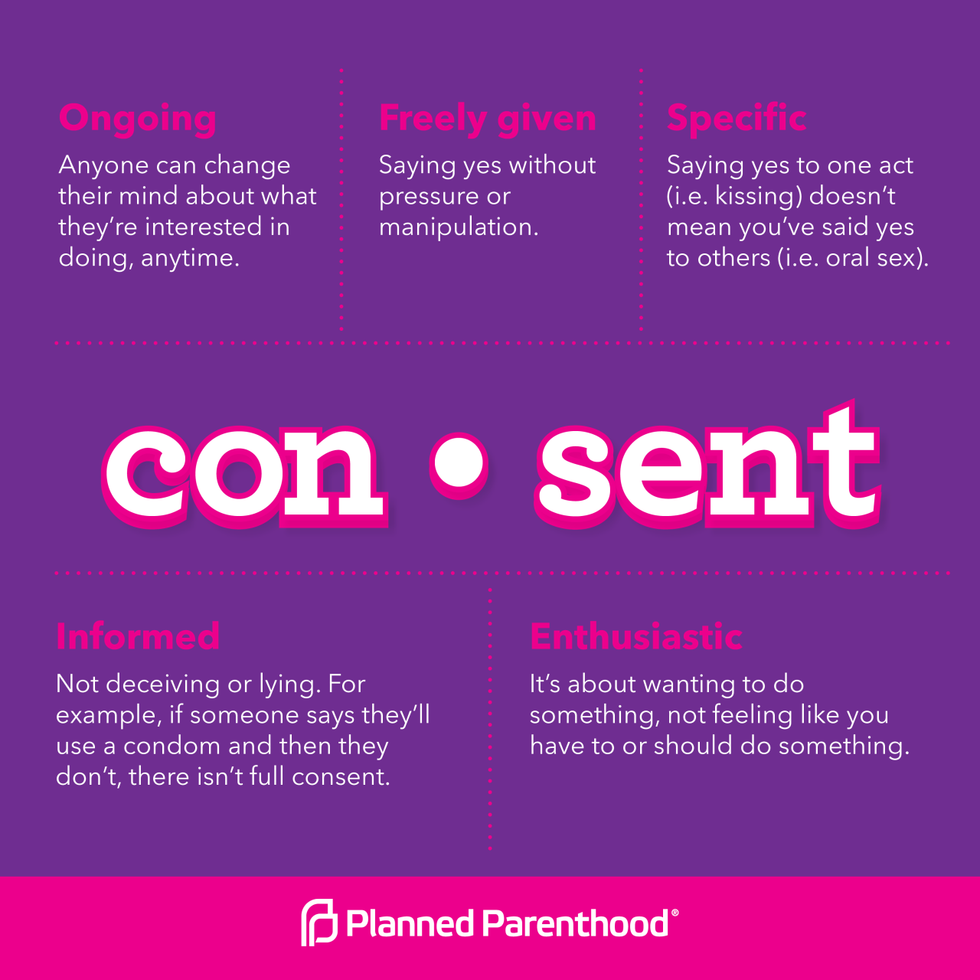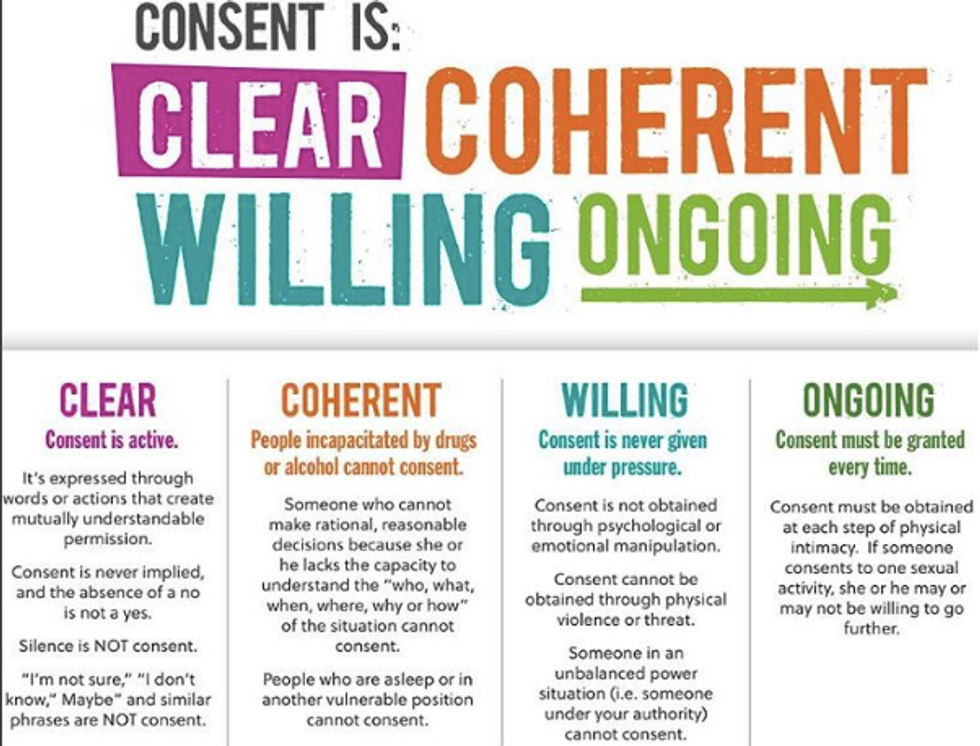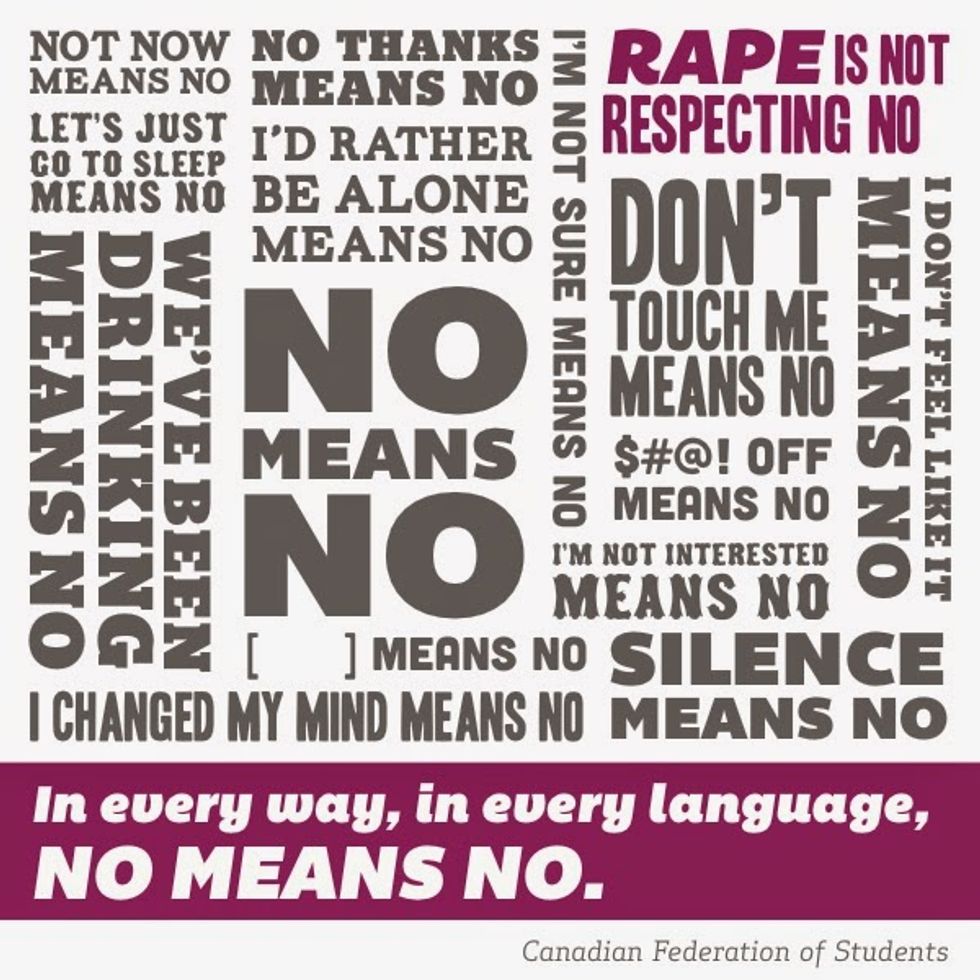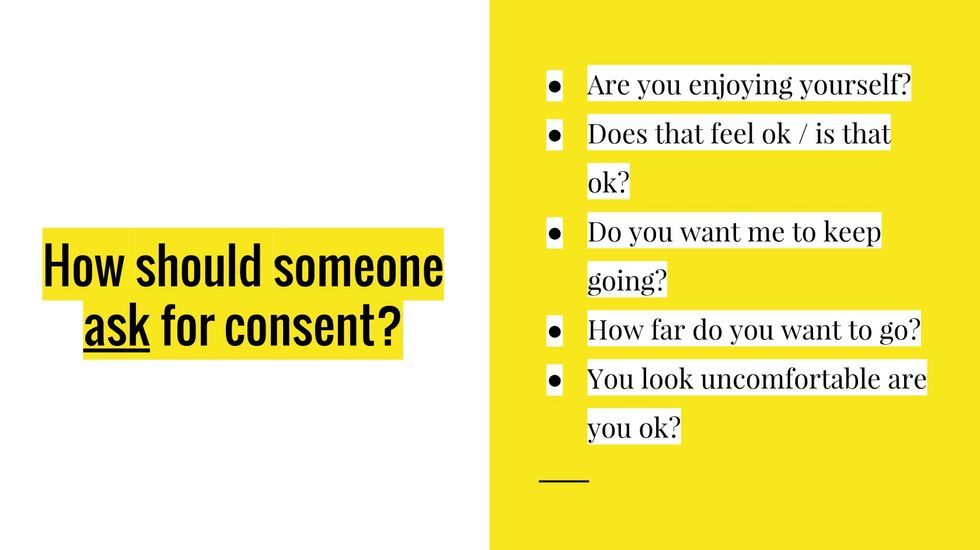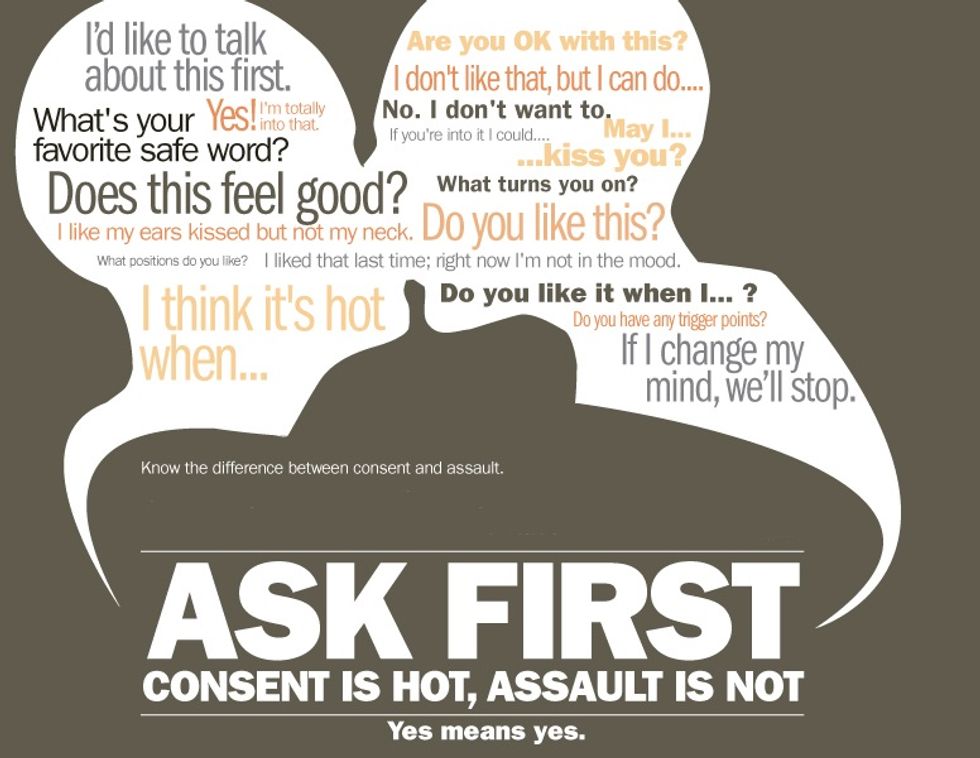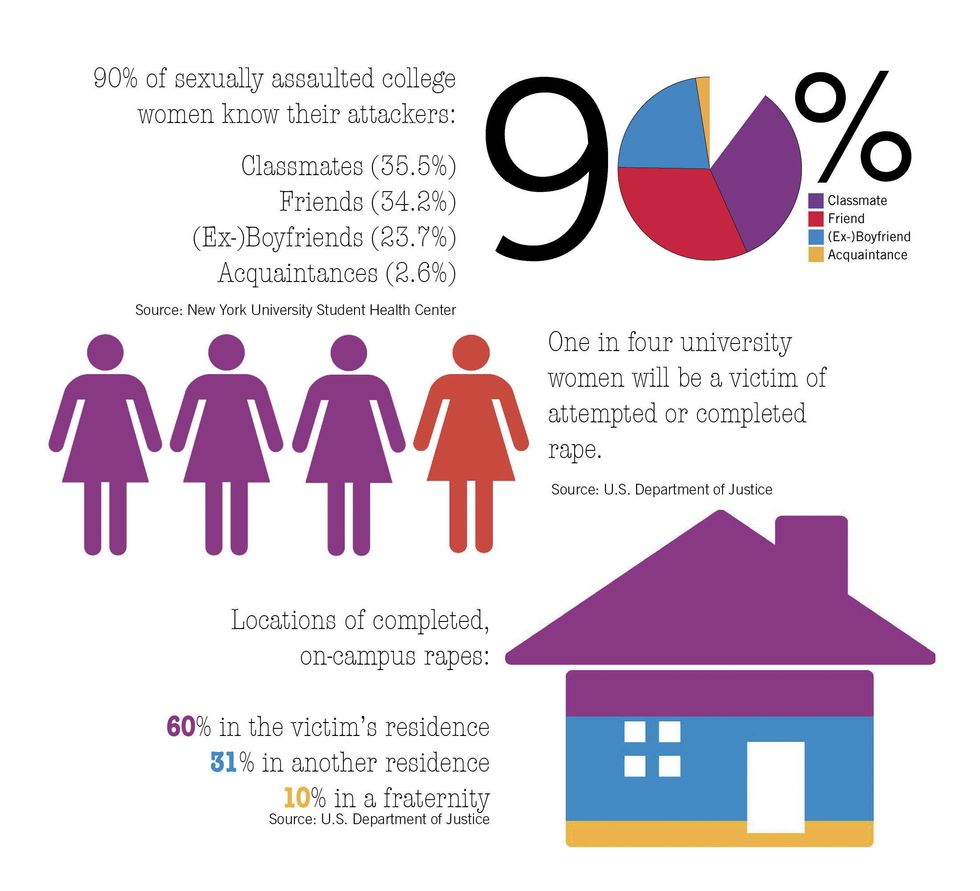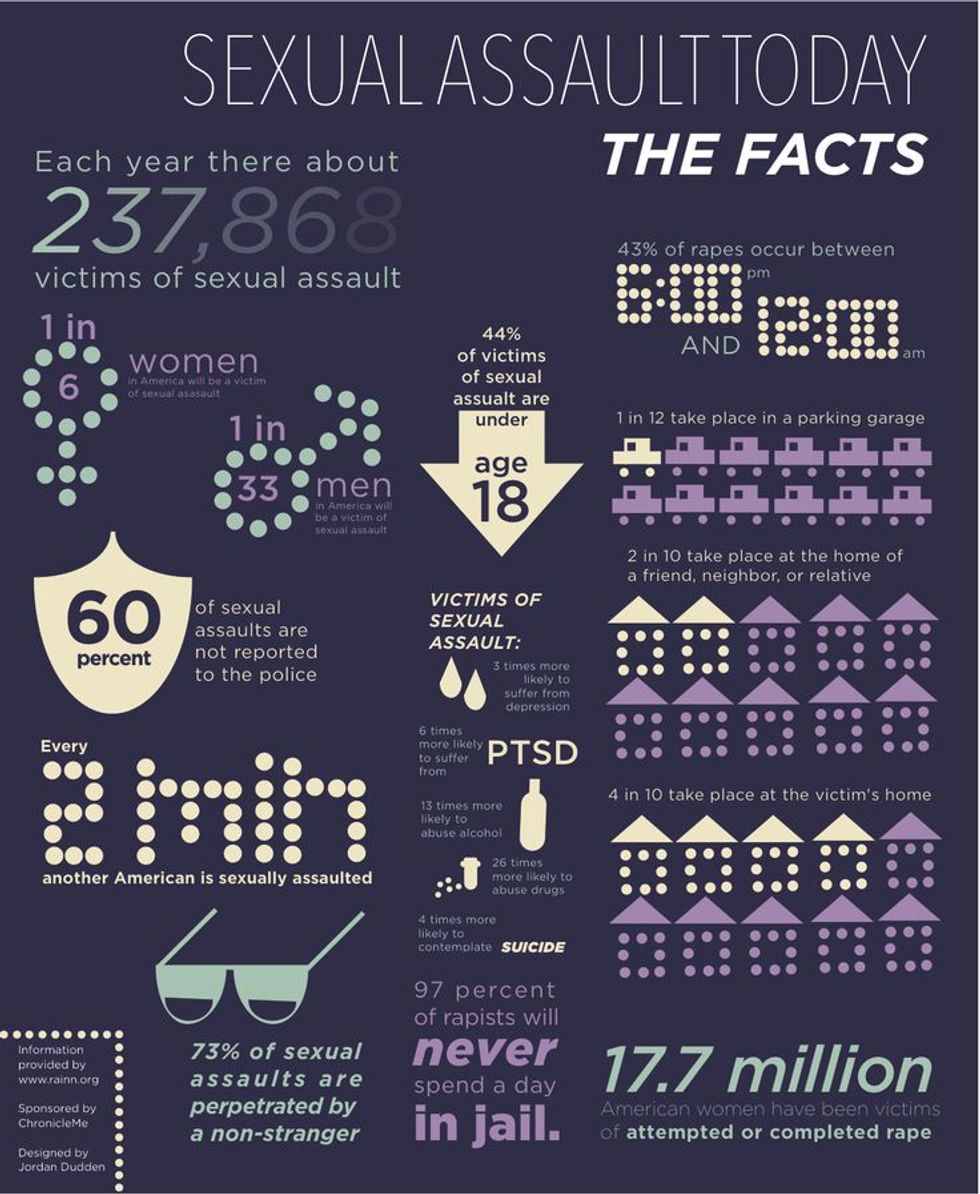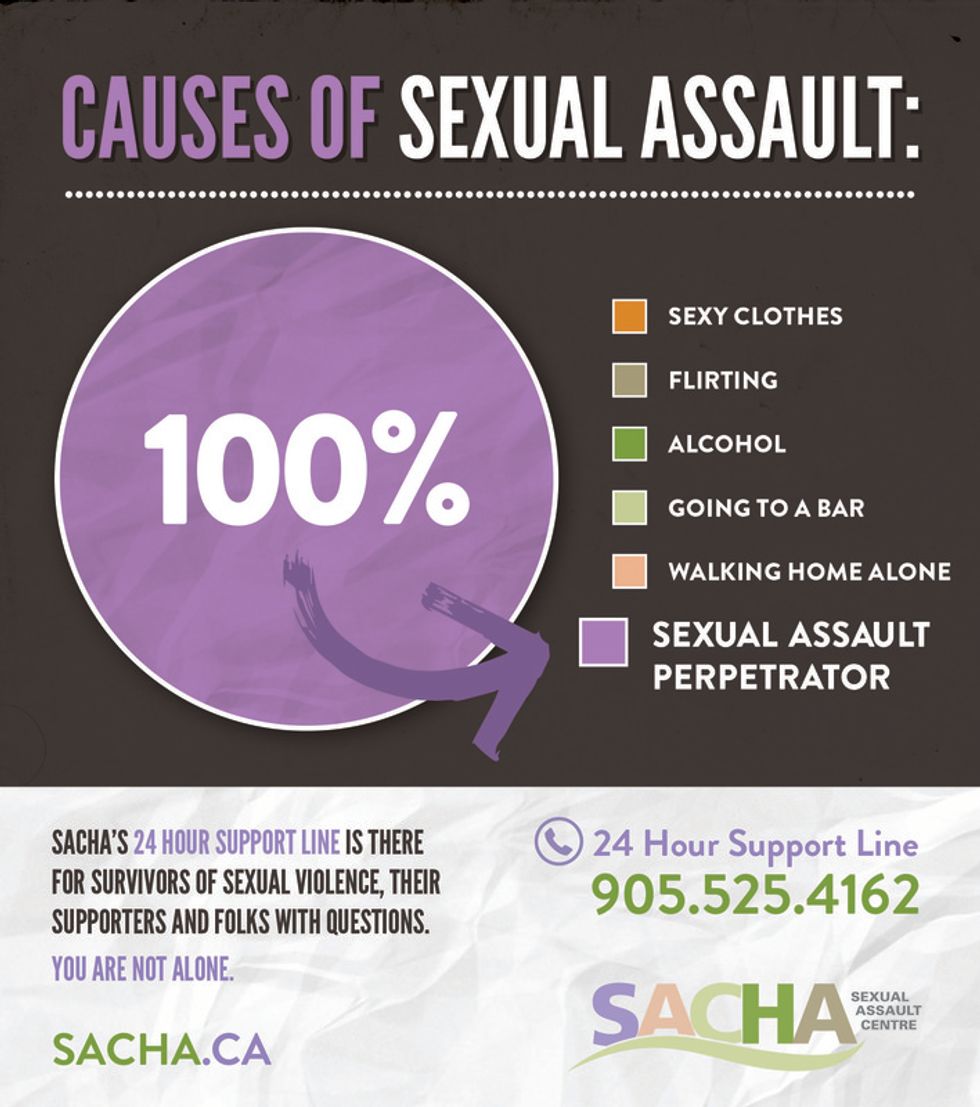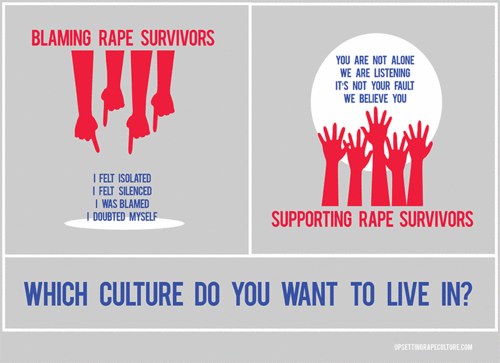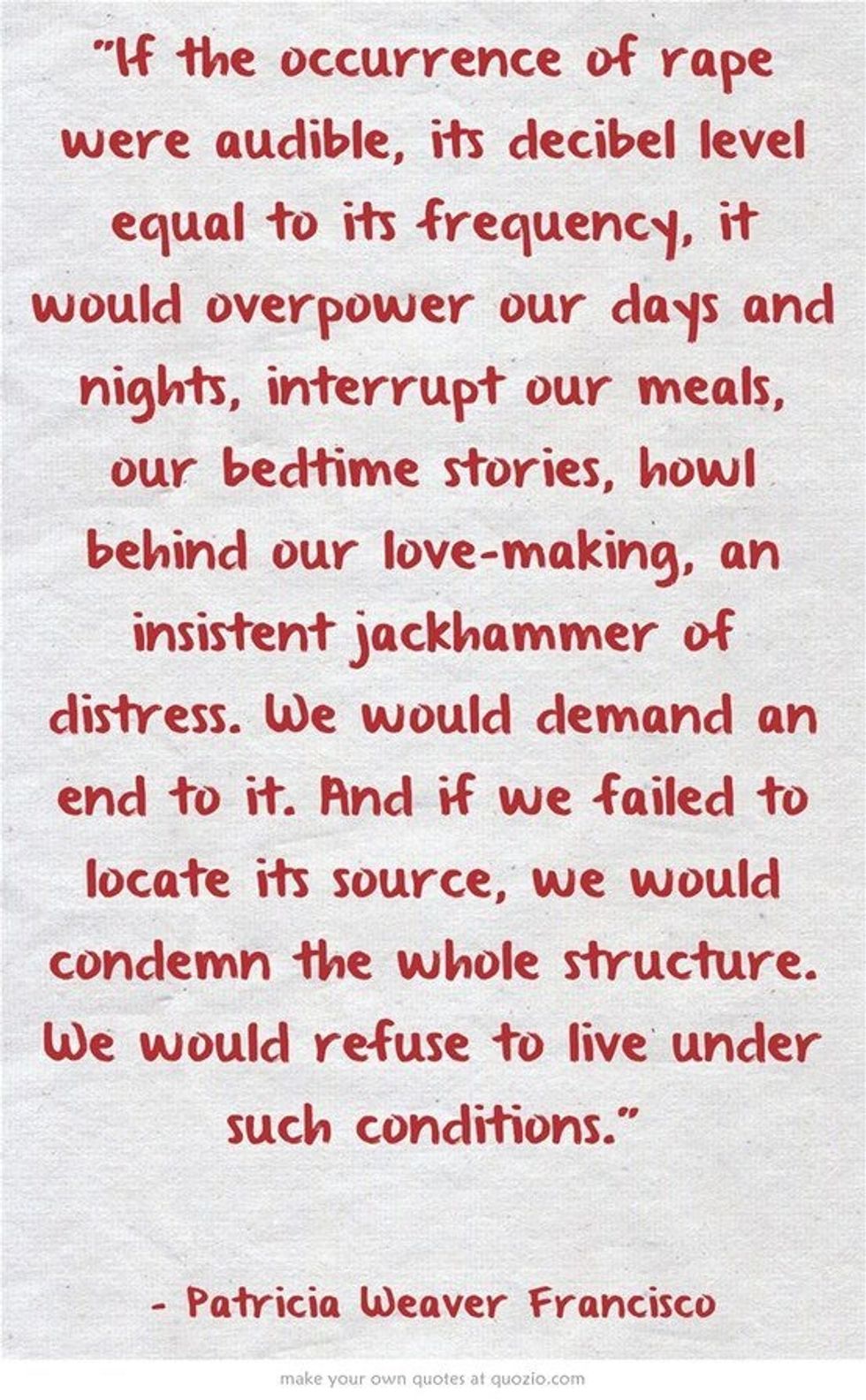We see a lot of well-meaning efforts to "Stop Rape," but ever noticed how they're all about self-defense?
The first step to stopping rape is teaching people... well, how not to do it, and that starts by talking about consent.
Our society sends a lot of mixed messages about what consent really means, and maybe that's something we need to address.
If you think you've overcome ALL your cultural biases about consent and rape culture, I've got news for you- you haven't.
Here are 10 important things you need to know about healthy consent- things you can apply to your own experiences to help you navigate the complex world of adulthood and intimacy within a toxic culture.
1. Sexual violence exists in a pyramid.
Messages from the media romanticize violent and unhealthy sexual encounters- think Edward Cullen lurking in Bella's closet in Twilight, the rape scene in Game of Thrones, or even Fifty Shades of Gray. We absorb these messages so much we might not even understand what healthy consent actually is.
These messages matter, and your small comments matter, too. It's all part of a self-perpetuating culture- and it starts with "locker room talk."
2. "Your joke contributes to a culture of violence."
Next time you hear a sexist joke, don't let it slide. It might feel like it doesn't matter, but it does.
3. People are wildly misinformed about what consent looks like.
Sexual violence is normalized in our culture. This does not make it okay.
4. We can address this by educating ourselves on what consent does look like.
Consent is informed, enthusiastic, ongoing, and specific. Consent is reversible (you can change your mind at any time) and freely given (you never, ever owe it to anyone). Consent is also sober, coherent, and active- if your partner is heavily intoxicated, they are not able to give consent. The burden to get consent always lies on you- it is not their job to say "no," it's your job to ask permission.
5. And what consent does not look like.
6. When in doubt, always ask again.
7. Because the statistics are baffling.
8. And you can change this by making sure you get consent every time..
9. By supporting survivors, and believing them..
10. Because the stakes are too high for us to afford not to.
If you think you or someone you know may have been a victim of sexual assault, you can call the National Sexual Assault Hotline at 1-800-656-4673 or visit their online chat here at RAINN.org 24 hours a day.
If you want to learn more about consent, check out these videos for more info here.
April is Sexual Assault Awareness Month. To learn more about sexual assault prevention, how to help survivors, or to find help yourself, you may visit the SAAM website here to learn more.





